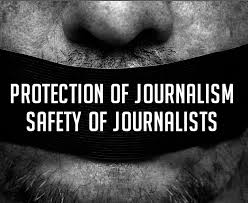Journalists’ safety bill rejected
ISLAMABAD: A parliamentary committee on Thursday rejected the government’s bill on the safety of journalists and set up a three-member subcommittee to draft another bill in consultation with stakeholders which will be tabled as a private member’s bill in case the government does not own it.
The decision was taken during a meeting of the Senate Standing Committee on Information, Broadcasting and National Heritage, which was chaired by Senator Kamil Ali Agha.
The subcommittee consisting of senators Farhatullah Babar, Nehal Hashmi and Khushbakht Shujaat was tasked with completing the draft legislation in two months.
The meeting was briefed on the government bill which the information ministry has already been sent to the Prime Minister’s Office for approval in order to place it before the cabinet at its next meeting. Cabinet approval is mandatory before a government bill is tabled.
Taking exception to the government bill, Senator Babar said it does not address central issues concerning the safety and protection of journalists.
He said the bill pays lip service and makes vague declarations about the ‘security of tenure’ and congenial working conditions’ for journalists.
“Security of tenure is one thing and the security of life of media persons from attacks by state and non-state actors is different,” he said, adding that journalists need security and protection from attacks.
The senator said the UN has provided guidelines in this regard and asked the information ministry to follow those guidelines which also call for the setting up of a special public prosecutor for pursing court cases regarding assaults against journalists.
The committee observed that presently an impediment in providing security to journalists was that they were left to fend for themselves. Neither the government nor media houses came forward to protect them. While cameras and other equipment are ensured, the men and women using them are not, the committee members said.
Mr Babar maintained that the government bill was also worded as if it is lecturing media persons on international best practices in the discipline of journalism instead of their safety and protection.

